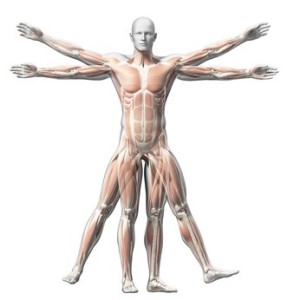
How the body works?
The human body has the highest level of complexity of all the organisms on Earth. Its consummate organisation surpasses that of any mechanism we have managed to contrive. The basic unit of the human body is the cell, of which we have billions. The cells combine into tissues which fulfil specific functions within the body. The tissues form organs like the lungs or the kidneys, for instance, and the organs interact within systems such as the respiratory or cardiovascular, for example. The work of all these complex structures is overseen by the brain, that most mysterious of organs, which, even today, has not been investigated to the full. The human brain is capable of directing a host of complicated processes, feelings and thoughts. Besides this, it possesses intelligence, which distinguishes us from other species of living creatures.
In order for all the cells of our bodies to function efficiently, maintaining a state of equilibrium is vital. This equilibrium, which is known as homeostasis, is defined as “the stability of the composition and conditions of the internal environment” and it constitutes both the foundation and condition of the body’s proper functioning. In the course of the evolution of the human body, special regulatory systems were formed. They make it possible to adapt to changing environmental conditions; in other words, they permit us to survive. They are all geared toward providing the cells with optimal conditions in which to operate.
